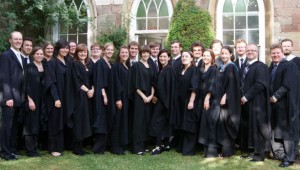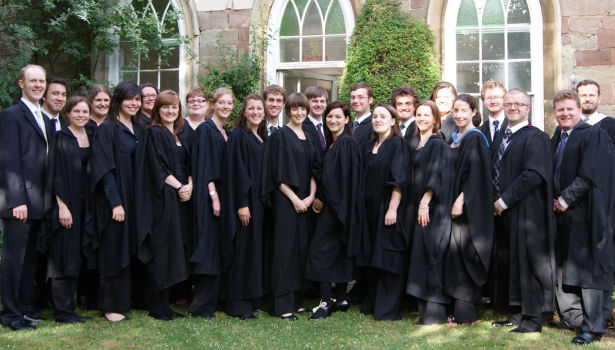 Broadly speaking, music for Lent falls into one of two categories: it’s either about us, our sins, our need for grace and salvation, or it’s about the suffering of Christ. Tonight’s programme, by late medieval and renaissance English composers, given by the Clothworkers Consort of Leeds, fell mostly into the second category, with music that does not hold back from vividly depicting the torture of the crucifixion. Like the most fervent Roman Catholic visual art, this was music drenched in gore and blood, musical imagery that treads the fine and dangerous line between agony and ecstasy.
Broadly speaking, music for Lent falls into one of two categories: it’s either about us, our sins, our need for grace and salvation, or it’s about the suffering of Christ. Tonight’s programme, by late medieval and renaissance English composers, given by the Clothworkers Consort of Leeds, fell mostly into the second category, with music that does not hold back from vividly depicting the torture of the crucifixion. Like the most fervent Roman Catholic visual art, this was music drenched in gore and blood, musical imagery that treads the fine and dangerous line between agony and ecstasy.
The Clothworkers Consort are a chamber choir of about twenty voices, drawn from the staff and students of Leeds University. Their sound was rich and rounded, and they didn’t hold back from bringing out all the earthy, emotional power of the music. John Browne’s Jesu, mercy, how may this be was particularly effective as the sopranos smoothly navigated the hiccuping sobs of the melody and the whole ensemble punched out the colourful text. The well-executed melismas of the opening work, William Cornysh’s Woefully arrayed were underpinned by impressively strong and resonant basses.
In between the pieces of elaborate, twisted polyphony came the clarity of two Sarum chant plainsong settings venerating the cross, and John Dunstaple’s O crux gloriosa – a tricky piece that was sung with spirit and style by three of the choir’s men. The early section ended with Richard Davy’s Stabat Mater, from the Eton Choirbook, which was sung with a lot of colour and expression.
The Norman Chapel is small and a choir singing with this level of intensity could easily have been overpowering, but apart from one moment when they got just a bit too loud, director Bryan White kept his singers at a carefully controlled volume; so that we were bathed in sound but never drowned. Purcell’s Hear my prayer, O Lord began almost in a whisper, with a passionate pianissimo and swelled to an overwhelming cry of despair. We didn’t clap after it because we were stunned into silence. Morley’s Nolo mortem peccatoris which followed and closed the concert was a comforting riposte.
The Clothworkers Consort are singing services at Durham Cathedral over the weekend, and I see that some of tonight’s music is repeated in the services – do go and hear them.
Full music list here: http://www.musicdurham.co.uk/event/ccl-crux-fidelis






